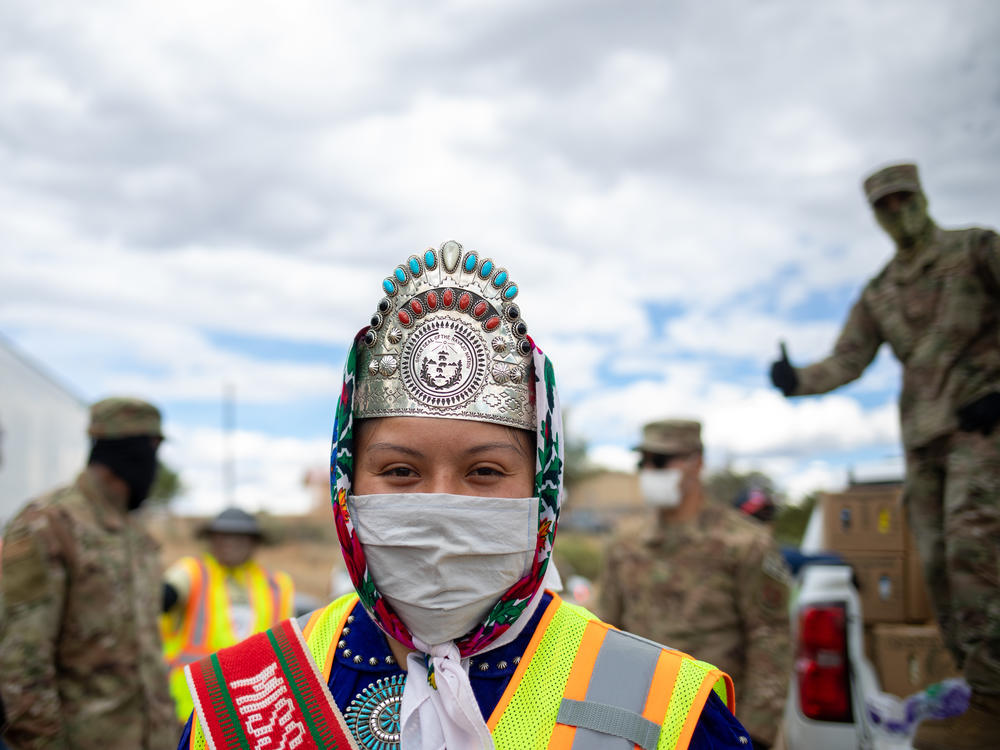Section Branding
Header Content
Navajo Nation Enters New Lockdown As Coronavirus Cases Rise
Primary Content
After warning of "uncontrolled spread" of the coronavirus last week, the Navajo Nation entered a lockdown Monday in an effort to stop infections.
Nonessential businesses are closed. Schools have been moved to online learning. Roads within the nation are closed to visitors. The lockdown will last at least three weeks.
"Unfortunately, it appears that this pandemic is going to get worse before it gets better. The projections from our health care experts indicate that the Navajo Nation, as well as the country, is on an upward trajectory in terms of new cases of COVID-19," Navajo Nation President Jonathan Nez said in a Sunday statement. "Please hold yourselves and your loved ones accountable and please pray for our Nation."
The reservation spreads across parts of Arizona, New Mexico and Utah. The government ordered a lockdown for the nation of over 170,000 between March and August in an effort to stop the spread of the coronavirus.
Now, cases are rising again, both within the reservation and in the surrounding states. The government has shifted its reopening status to code red, invoking its strictest lockdown protocols.
On Sunday, the nation reported 117 new cases and four more deaths. Overall the government has recorded 13,373 cases.
Contract tracers found the infections spread from outside the nation, KJZZ's Laurel Morales reported, when residents visit family or friends and then return
Tribal officials say they still have a few ICU beds left. The surrounding states' hospitals that the tribe relies on are close to capacity.
Nez recently vetoed a plan to reopen the nation's casinos at a reduced capacity. He said the government will instead explore relief options to support Navajo businesses.
"We cannot put a price tag on the health, safety, and lives of our Navajo people. Revenues do not outweigh the precious lives of our elders, children, and gaming employees," Nez said.
In August, the government distributed $24.6 million in CARES Act funds to avoid layoffs of gaming employees.
The nation is battling pandemic fatigue among its residents, NPR's Dustin Jones reported. Previously, its department of health eased weekend restrictions to combat fatigue and to deter outside travel.
The rise in cases comes as the United States is facing surging case counts all over the country. Since the start of the pandemic, the U.S. has recorded more than 11 million cases.
"We all have a role to play to protect ourselves and our relatives," said Dr. Jill Jim, executive director of the nation's health department, in a statement. She said cases are approaching the nation's record high of early May.
Copyright 2020 NPR. To see more, visit https://www.npr.org.

